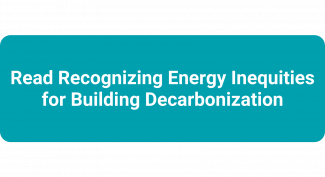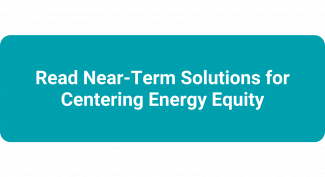
NEEP's Equitable Home and Building Decarbonization work provides a public program of opportunities and resources that inspire, inform, drive, and support community leadership and collaboration across the region to accelerate resilient, healthy, affordable, low-carbon homes and buildings that serve especially the most vulnerable.
Most Northeast states have aggressive long-term energy and carbon reduction goals in-line with the United Nations recommended 45 percent greenhouse gas emission reduction below 2010 levels by 2030 and net zero by 2050. To meet these steep targets, community leadership must complement state leadership to drive low-carbon, efficient building solutions that meet local needs (e.g., healthy, safe, resilient, affordable housing that supports a thriving, inclusive local economy). This includes partnerships with leaders from public health, affordable housing, and community and economic development to advance equitable opportunities and solutions, particularly for those most vulnerable to rapidly advancing climate change and who suffer high energy cost burdens as well as the brunt of COVID-19 health and economic impacts.
Energy Efficiency and Equity
Because of a variety of historical barriers set deep in our social and energy systems, many policies, programs, and products aimed at building decarbonization are not adequately serving those most in need of energy and cost savings. NEEP's StoryMap and brief, titled Recognizing Energy Inequities for Building Decarbonization and Near-Term Solutions for Centering Energy Equity, respectively, identify barriers to and solutions for creating a foundation for equitable building decarbonization focused on the residential sector.
The StoryMap describes energy insecurities faced by historically marginalized or excluded communities across the Northeast and Mid-Atlantic region while identifying barriers to the equitable integration of low-carbon building retrofit solutions into our communities.
The brief identifies pathways towards a more equitable application of energy efficiency solutions so that we can achieve healthy, affordable, and sustainable buildings for all residents of our region by sharing scalable best practices from communities and groups tackling energy inequities. These resources aim to help energy efficiency policy- and decision-makers to make more equitable, inclusive decisions and to begin to share decision-making power with the communities they serve.


